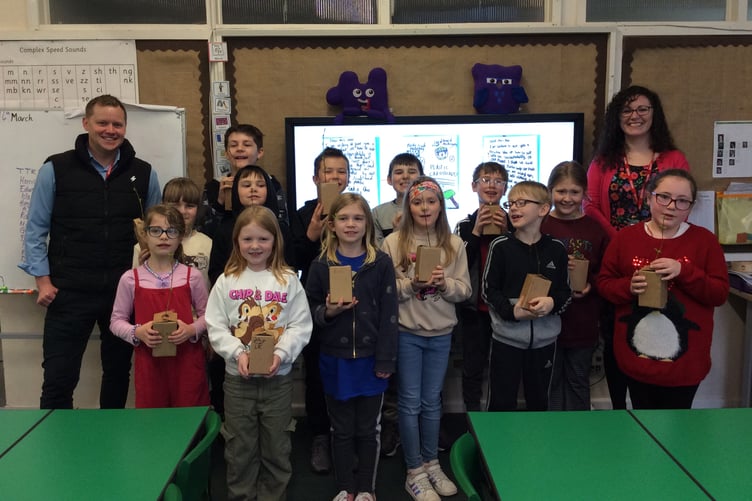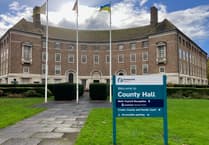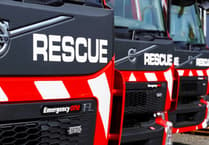A UNIQUE ‘tree in a box’ planting project has been relaunched by a Somerset firm to teach local schoolchildren about sustainability - and cardboard manufacture.
Wellington-based RH Fibreboard Containers Ltd began the project in 2020 but was stopped when the Covid pandemic struck after just three months.
By then, company sales director Steve Gabell had helped several schools plant about 70 trees, some of which have since grown to about 10 feet tall.

Now, Mr Gabell has started again with another 280 trees planted this year by pupils in Lydeard St Lawrence Primary School, one in Wellington, and one near Bristol.
Mr Gabell said: “We educate children on sustainability, the positives of wood, paper, and cardboard, nature, recycling, and biodegradable materials.”
The project uses flat-packed corrugated cardboard boxes which pupils assemble and fill with compost to take tree saplings which are bought by RH Fibreboard from the Woodland Trust.
The youngsters take home their ‘tree in a box’ to plant in the ground, with the top of the box collecting rainwater and draining it into the soil for the tree to grow.
The cardboard biodegrades in four to six months, leaving the sapling to grow on its own.
Mr Gabell said the idea was adapted from a carton manufacturer’s project when it was pointed out cardboard could be put directly into the ground.
He said: “What I find with sustainability is a lot of projects that are lasting 10, 20 years, and things that nobody really can change quickly and are taking too long.”
But the ‘tree in a box’ concept was helping to change perceptions ‘very, very quickly’.
Mr Gabell said: “It is a real sustainability message of ‘look what we can make out of a natural product and then look how it can go back into the ground’, help a tree grow by composting.
“I was quite inspired by this.”
He said many of the children to whom he talked ‘know so much about nature, and hardly anything about cardboard’.
So, the project was a fun way for a cardboard box manufacturer to interact with children by engaging them with facts such as the tallest tree in Britain could be found in Dunster and each of the trees they planted could support 300 insect species and attract woodpeckers and other birds.
Mr Gabell said silver birch was usually chosen for the plantings because it was such a hardy species of tree and could be grown anywhere from Scandinavia to Portugal.
Beech Grove School, Wellington, assistant headteacher Amy Walsh said: “The children learnt about why cardboard is important and how it is sustainable for our planet.
“They explored how cardboard is reusable, renewable, and recyclable.
“The children looked at the Forest Stewardship Council (FSC) logo and were impressed that for every tree that is used, three more are planted.
“Steve’s visit was a great opportunity to let the children know about job and career opportunities for the future, and how science plays a big role in a range of careers.”

-has-been-sent-to-prison-for-his-role-in-Just-Stop-Oi.jpeg?width=209&height=140&crop=209:145,smart&quality=75)
.jpeg?width=209&height=140&crop=209:145,smart&quality=75)


Comments
This article has no comments yet. Be the first to leave a comment.